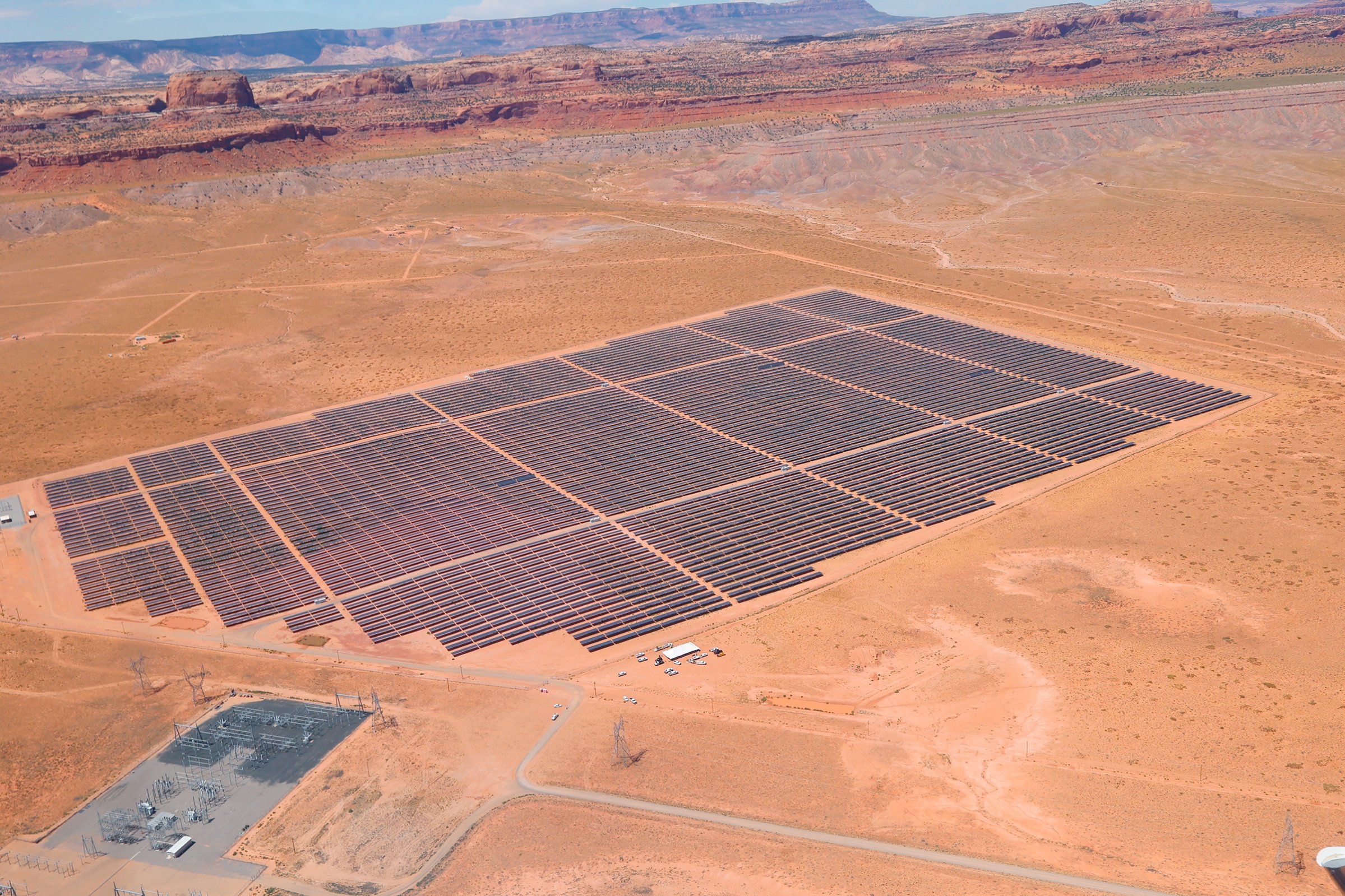
It was a feat of American ingenuity that created the world’s first operational solar panel in the mid–20th century at Bell Laboratories in New Jersey. The U.S. maintained its pace-setting role in the development of solar technology in the half-century that followed, driving down its cost and helping turn it into a growing source of power for utilities and consumers around the world.
As the market has matured, however, global competition has nudged the pioneer from its perch. Today solar-panel manufacturing has expanded to a more than $40 billion industry worldwide, more than half of which is controlled by China. With massive government investment, China has developed an unparalleled ability to build solar panels cheaply, allowing its companies to pass on the relative savings to the consumers and energy companies that buy them. As a result, China’s solar-panel industry has grown an average of 18% annually in the past five years, compared with just 0.4% growth in the U.S., according to data from market-research firm IBISWorld.
Now two struggling American solar manufacturers have launched what they’re casting as a last-ditch effort to save the industry’s small U.S. footprint. The solution: a tariff on Chinese solar-panel imports. The appeal for them is clear. The proposed tariff would effectively double the price of Chinese panels, making U.S. panels competitive again in the domestic market. “Without temporary relief, there will likely be no existing American [solar] cells or modules industry within a short period of time,” wrote Suniva, a solar-panel manufacturer, in a federal complaint. “Relief is necessary to prevent the permanent loss of a competitive domestic industry.”
But the companies that operate panels and sell the electricity say a tariff would rattle their industry. Electricity generation from solar power has grown exponentially in the past decade. If the cost of panels suddenly soared, many industry analysts warn, the development of new projects would grind to a halt.
“If you were to double the price of a solar module, it would have massive negative impacts for 99% of the solar supply chain,” says Amy Grace, head of North American research at Bloomberg New Energy Finance, a research firm. “You would be cutting off your entire body to save your pinky.”
The pinky in this case is about 8,000 panel-manufacturing jobs, a fraction of those held by the 250,000 people who work in the U.S. installing, operating and repairing solar equipment at homes and utility-scale power plants. These workers would quickly face job insecurity, with many possibly losing their jobs.
The potential fallout has inspired a coalition of unlikely partners–from the conservative Heritage Foundation to alternative-energy trade groups–to join together to lobby the Trump Administration to reject a tariff. They argue that the negative effects would extend beyond the solar industry to utility companies, construction firms and ordinary consumers.
“Tariffs today would amount to nothing more than a crony capitalist giveaway,” a group of conservative groups including Heritage said in a September open letter. “They would be paid for by crippling an otherwise growing domestic solar industry.”
A decision on the issue from the International Trade Commission in Washington, D.C., is expected this month. If the group determines that Chinese solar imports threaten to destroy the U.S. solar manufacturing industry, President Trump will have license to propose a remedy.
There are signs that Trump will be sympathetic to aiding the nation’s solar-panel makers. He has expressed skepticism about free-trade deals, decried the U.S. trade deficit with China and reportedly asked advisers to develop plans for a tariff to boost U.S. manufacturing.
Together, this posture has left the renewable-energy industry unsettled. Solar and wind advocates have long believed the market will keep America’s solar industry afloat. But even the market may be no match for a tariff.
More Must-Reads from TIME
- Donald Trump Is TIME's 2024 Person of the Year
- Why We Chose Trump as Person of the Year
- Is Intermittent Fasting Good or Bad for You?
- The 100 Must-Read Books of 2024
- The 20 Best Christmas TV Episodes
- Column: If Optimism Feels Ridiculous Now, Try Hope
- The Future of Climate Action Is Trade Policy
- Merle Bombardieri Is Helping People Make the Baby Decision
Write to Justin Worland at justin.worland@time.com